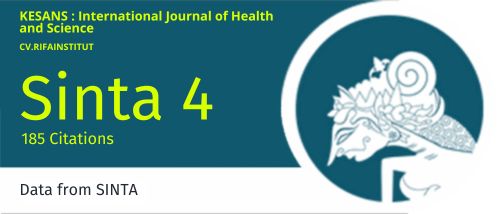Effectiveness of Community-Based Interventions in Preventing Tuberculosis: A Systematic Review
DOI:
https://doi.org/10.54543/kesans.v4i11.409Keywords:
Community-based intervention, Tuberculosis Prevention, Program EffectivenessAbstract
Introduction: Tuberculosis (TB) remains a major global infectious disease, influenced by social determinants such as poverty. Community-based interventions (CBIs) are crucial for prevention, as they address biological and economic factors, enhance early detection, and engage communities in identifying, preventing, and managing TB. Strategies like active case finding (ACF) and community-based TB preventive treatment (TPT) reduce transmission, improve diagnosis in children, overcome transport barriers, and increase patient acceptance. Method: This systematic review examines CBIs in developed and developing countries, focusing on TB incidence and treatment adherence. Data were obtained from PubMed, Scopus, Web of Science, and Google Scholar. Results and Discussion: Proactive case finding accelerates diagnosis and treatment, reducing transmission and improving outcomes. In Uganda, multidrug-resistant TB patients favored community-based care with transport support. Fluoroquinolone-based TPT was safe, reduced adverse events, and lowered TB cases. Conclusion: CBIs are effective in preventing and treating TB, lowering prevalence rates. Key risk factors include diabetes, smoking, and low BMI. For maximum impact, community health workers require recognition, training, fair compensation, and integration into national health systems.
Downloads
Published
How to Cite
Issue
Section
Citation Check
License
Copyright (c) 2025 Nuno Pedro Guterres Magno, Elias Pereira Moniz, Frenania Ermelinda Amaral Gaio, Manuela Maria Fernandes Amaral, Isaura Belo

This work is licensed under a Creative Commons Attribution-ShareAlike 4.0 International License.





















